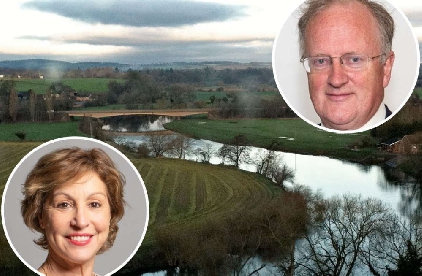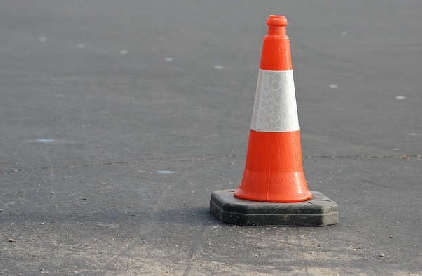
A government minister has rejected Herefordshire Council’s bid to gain special protection for the polluted river Wye.
In January, a full meeting of Herefordshire councillors voted unanimously to back bringing in a water protection zone (WPZ) for the Wye catchment – a measure which would place tighter restrictions on farms and other pollution sources, but which only a government minister can implement.
Council leader Coun David Hitchiner then wrote to Rebecca Pow MP, minister for nature recovery and the domestic environment, urging her to bring in the measure, given that “existing regulatory arrangements are insufficient” to deal with the pollution problem.
He said farmers in the county “on the leading edge of farming innovation… would have little to fear from a WPZ as they are doing the right thing anyway”.
And he asked for Ms Pow’s support for the county’s plans to create a “phosphate commission” backed by a government grant.
Ms Pow met Coun Hitchiner and other senior figures at the river shortly afterwards to discuss its seemingly intractable pollution problem – though she warned at the time that a WPZ “would be another tier of regulation”.
Now in a letter which has just been published among papers for today’s Wye Catchment Nutrient Management Board meeting, Ms Pow has written back to say a WPZ “would impose new and distinct regulatory obligations on the farmers and businesses within the catchment”.
This “would lead to additional regulatory burdens in comparison to businesses in other areas of the country”, she said.
As to the phosphate commission idea, she said: “I would be concerned that a new group, without formal membership of those with accountability for delivery [i.e. regulatory bodies], could further distract resource and drive differences in opinion.”
Meanwhile pressure group Fish Legal says it has been told by Natural Resources Wales (NRW) that the agency has found no evidence of a worsening in the condition of the Wye from the proliferation of intensive poultry units in the catchment, and therefore is under no obligation to act.
According to NRW, which based its conclusions on 2009-2015 data, only one river within the Wye catchment, the Afon Chwefru in Wales, has been identified as potentially deteriorating.
Fish Legal, formerly the Anglers’ Conservation Association, says it provided NRW with its own expert report which should have compelled it to take action to address the problem, particularly on the river Ithon, a main tributary of the Wye in Wales.
Its solicitor Justin Neal said: “This is a clear example of a regulator burying its head in the sand.
“They will continue to rely on their own out-of-date assessments to deny what is glaringly obvious to everyone else: the River Wye as a habitat for wildlife is deteriorating.”
NRW’s head of mid-Wales operations Gavin Bown said: “The factors contributing to pollution in the Wye catchment are complex with a range of different sources contributing to phosphate levels in the river system.
“We can confirm that we have been in correspondence with Fish Legal, who continue to consider the legal position, and so we cannot comment any further at this moment in time.”

 Revealed: The main roads in Herefordshire prioritised for repairs
Revealed: The main roads in Herefordshire prioritised for repairs
 Appeal to find missing Monmouthshire man
Appeal to find missing Monmouthshire man
 Man arrested in connection with stabbing incident
Man arrested in connection with stabbing incident
 New Food and Drink group launched at online event
New Food and Drink group launched at online event
